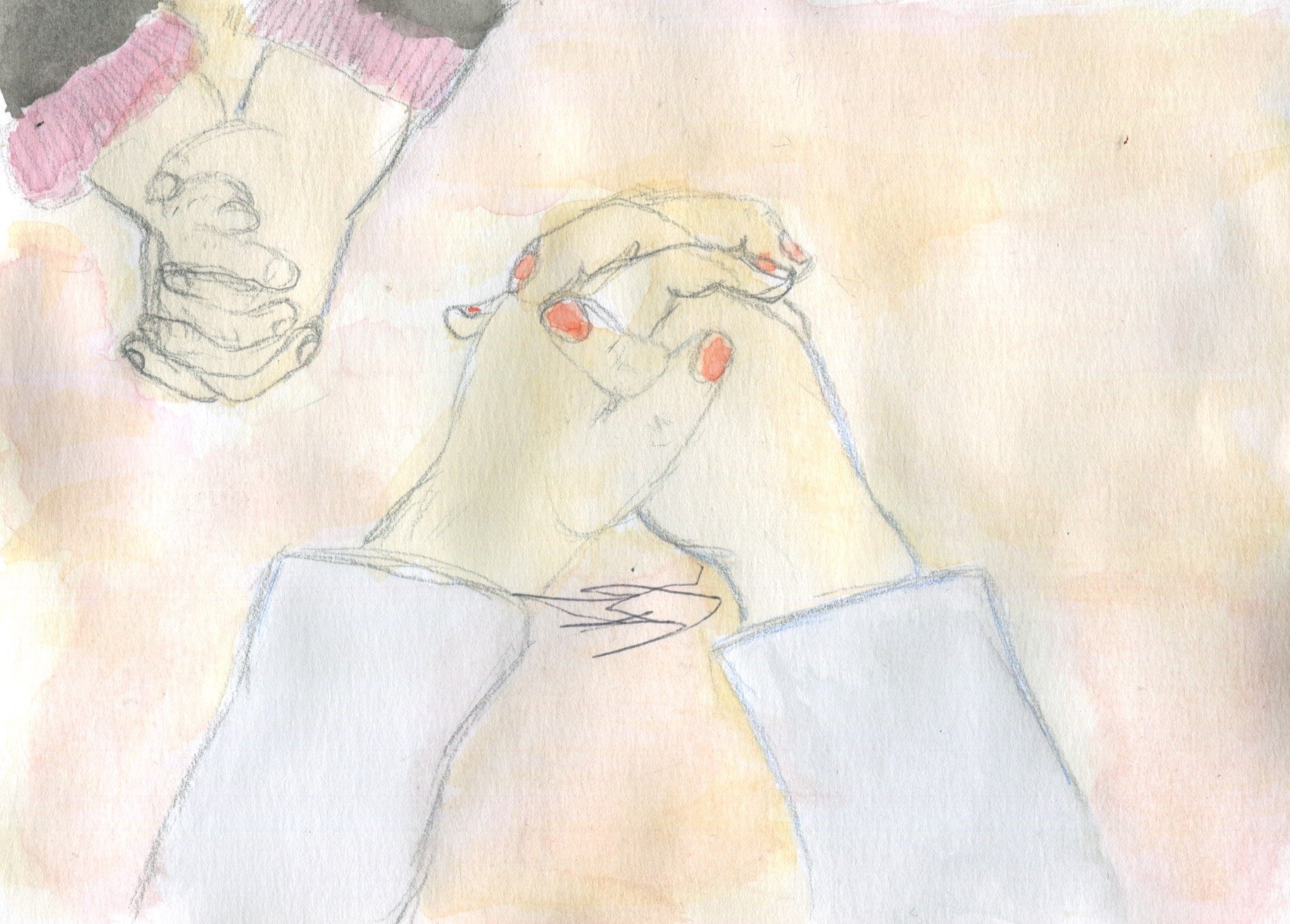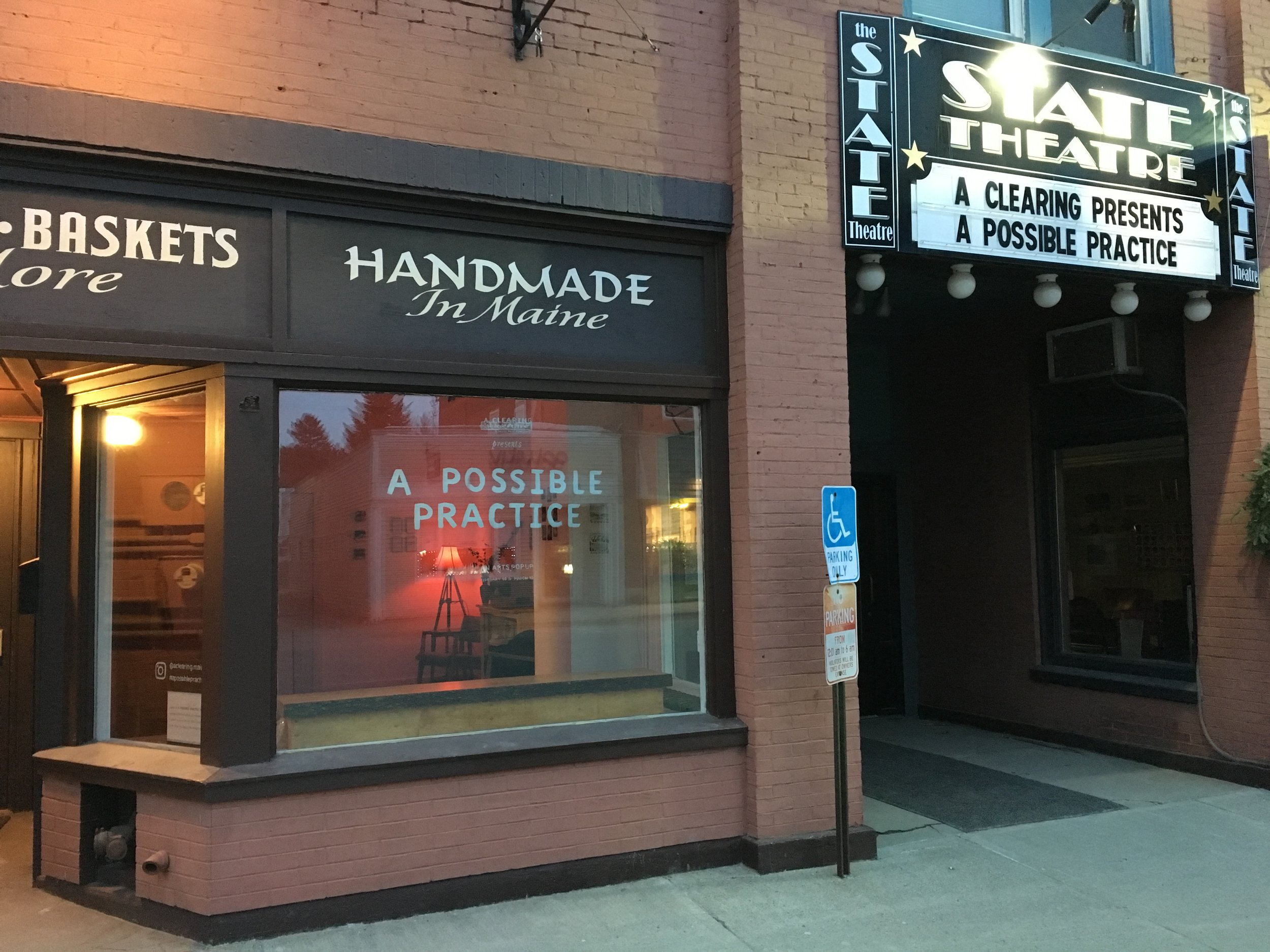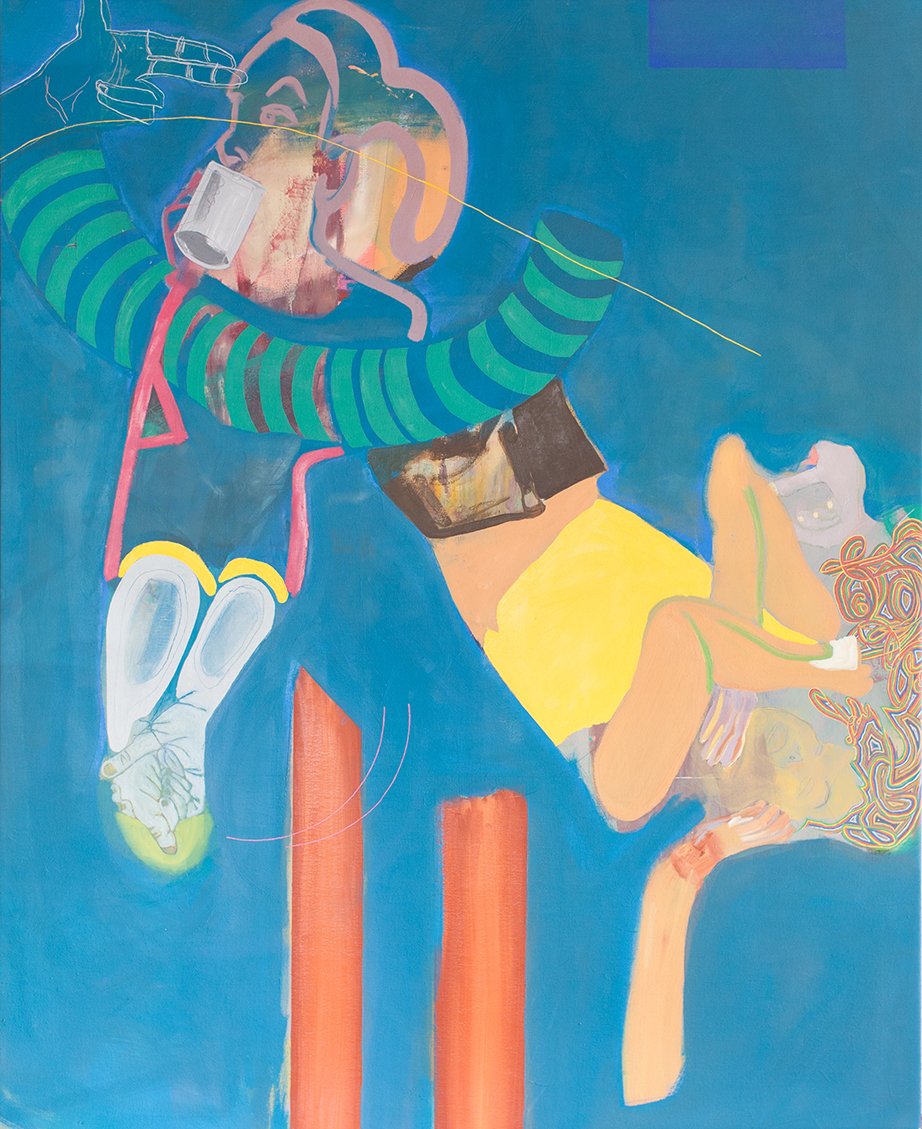
etymologies
An experiential collaboration in conversation with K-Ming Chang’s poem “Etymology of butch.”
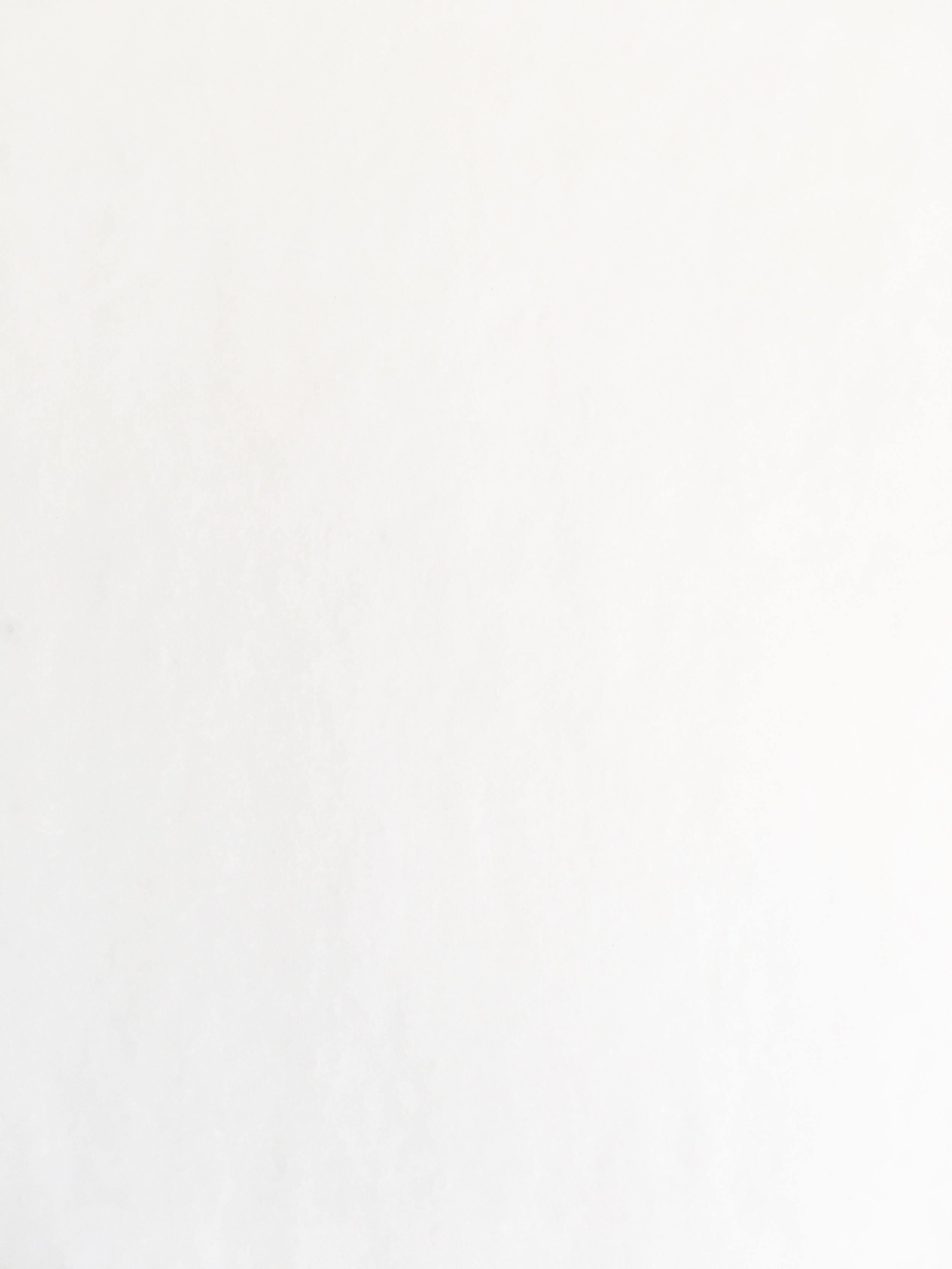
Etymology of butch
I. Butch: Possible abbreviation of the word “butcher”
A. I am the granddaughter of a butcher. A knife plotting meat is audible ancestry
B. Asians are known to eat every part of the animal. Balls and all. Tongue
1. her wet deity. My salted chin. Meat-monger, I am bowl
2. of howl. Every bride is a basket
C. we fill with fresh eggs. My grandfather once butchered a chicken that laid no eggs
1. but still ate from his palm. He called this theft. He said every animal must atone
2. for its hunger
3. in usefulness. The year I said no
4. children, I fled the house. When I say house I mean
5. body. Tower of my wife’s wrist, bone-keyed locks. Language is the fugitive
D. of meaning: my name is the knife my voice unsheathes. Draws on its own throat.
1. In bed, we wear a fur of fathers. The stars like knocked-out teeth
2. I lock braces with the first girl I kiss. The sparks smell like
3. the soap of a sun.
E. My grandfather eats even the bones of things. White is the color
1. emptied of bodies. A scar roves my skin like a pink search party.
2. We waste not. No part of my body uneaten, unused
3. to butchery. With a handsaw I hack my hair a holy length
4. blunt as a crown. Asian-bangs. The bowl haircut
5. my first boyhood. My blade identity. Bungled
F. beauty: beast I aimed to skin
1. but carved bone-torches of instead. Night
2. I exaggerate like a hole, master my meat
3. a moon’s mistressing.
II. Butch: nickname for a boy, possibly derived from the name George “Butch” Cassidy
A. Crimes:
1. Robbery (I ferment her hands in me. Now they’re foam & wrists of water
2. Hijacking (I wear my brother’s hand-me-downs. My mother says when we’re not so poor she’ll dress me like her girl. My first dress is patterned with fishes & hooks. I grow out of it in less than a year. My breasts absolve themselves of fabric. My first English teacher invites me to sit on his lap
3. Banditry (we play family. I ask you to call me father. I make you serve me dinner first. Dirtdumplings & slugs for dessert. Take my name. Be the son in my lineage of losses. Be the law to my longing. The lap to my ass. The sound to my
B. slurs / nicknames:
1. Dyke. I sizzle the river with my spit. I wade without legs. I keep my hair long as a fishline. I fill my lungs with birdlife. Feathers are femme. My wings rest in her chest
2. Lesbo. the island of Lesbos is not an island but a boat. The oars are enormous arms. The boat itself is a belly. It swallows its own sail. It sells wind to women who return as pickled swans. Some heroes, before leaving home, carry their mother’s sweat in a vial around their necks. They sniff the vials to keep from straying. Daughterhood is something like dogness
3. in that we eat what is fed. We sniff our enemies’ asses. We run after cars belonging to fathers. We fetch sticks to be beaten with
4. White girls call me fish breath. The doubleness of this: my mother at the Chinese grocery rips the gills off fish. Prepares them for the afterlife in our bodies. I’m never allowed
5. to eat out. My mother says we’ve got leftovers at home. The gut parts golding our sink. The inedible spine. We share the stink. My mother says swallowing fish bone will grow a girl in me. Puncture me openings. Like a bead’s twinned mouth I necklace a lineage through. With a hot sword, she cauterized the hole I widened then widowed. First of many betrayals: my refusal to resemble, to reassemble rain into a cohesive water, daughter. To disown all salt in a series of bleedings. My masculinity a factory. An assembly line of mothers unmaking me. Wageless warfare. What god criminalizes creation? Mine
divine. Mine of my own hands. Mine of a prayer arrowheaded in silence, my body a steed I ride to sabotage
C. gods:
K-Ming Chang is a Kundiman fellow, a Lambda Literary Award finalist, and a National Book Foundation 5 Under 35 honoree. She is the author of the New York Times Book Review Editors’ Choice novel BESTIARY (One World/Random House, 2020), which was longlisted for the Center for Fiction First Novel Prize and the PEN/Faulkner Award. In 2021, her chapbook BONE HOUSE was published by Bull City Press. Her most recent book is GODS OF WANT (One World/Random House, 2022). Her next books are a novel titled ORGAN MEATS (One World, 2023) and a novella titled CECILIA (Coffee House Press). She loves folklore, vampire literature, and birdwatching in her home state of California.
poem
A POSSIBLE PRACTICE: Etymologies is our love letter to lineage, to becoming, to our delicious fluidity of form: a deep creative collaboration with each other and our community with K-Ming Chang’s poem, “Etymology of butch,” as our guide.
art
lineage the ancestries, to name as an attempt to know, consumption / to consume / to be consumed by [ ], violence as or against creation, human as animal, body as home, ripe queering, (un)learning, our delicious fluidity of being—
We gather in the slow mornings, our momentary quiets. The deep-root trees, bare or expectant. Each season calling us, back and back, asking us to look.
We fevered sprawling days together. We listened to each other sing. Recite poems. Tell stories of grandmothers stretching their love into new lives. Savored hot meals in the flavor of our memories. We gazed into the face of art made in this time of unknowing and saw the mirror reflect back. We created a map. We confronted our fears of being visible, of inviting you in, of sacrificing our personal control to the mysteries of collaboration. We carved small beauties in this beast of a world and warmed ourselves by their light. We got lost. And felt despair and followed each other, feeling the loose dirt at our feet and walked more carefully, kept walking, returning home in our acts of practice, never exactly the same. We searched for ways to name and re-name our selves: naming as a means to know. We danced with our queerness, with the shape-shifting moon, our animal bodies beating.
We grew (are growing) possible in the intimacies of our practice together. Root, ripe, seed, circle, back, and back again.
This is a surviving catalog of our existence together.

Mai Snow | "Sorry Bout the Egg" | Oil on Canvas | 48” x 48”

Chelsea Ellis | "sabotage gods" | Digital Photography on Cold Press Paper | 23” x 29”
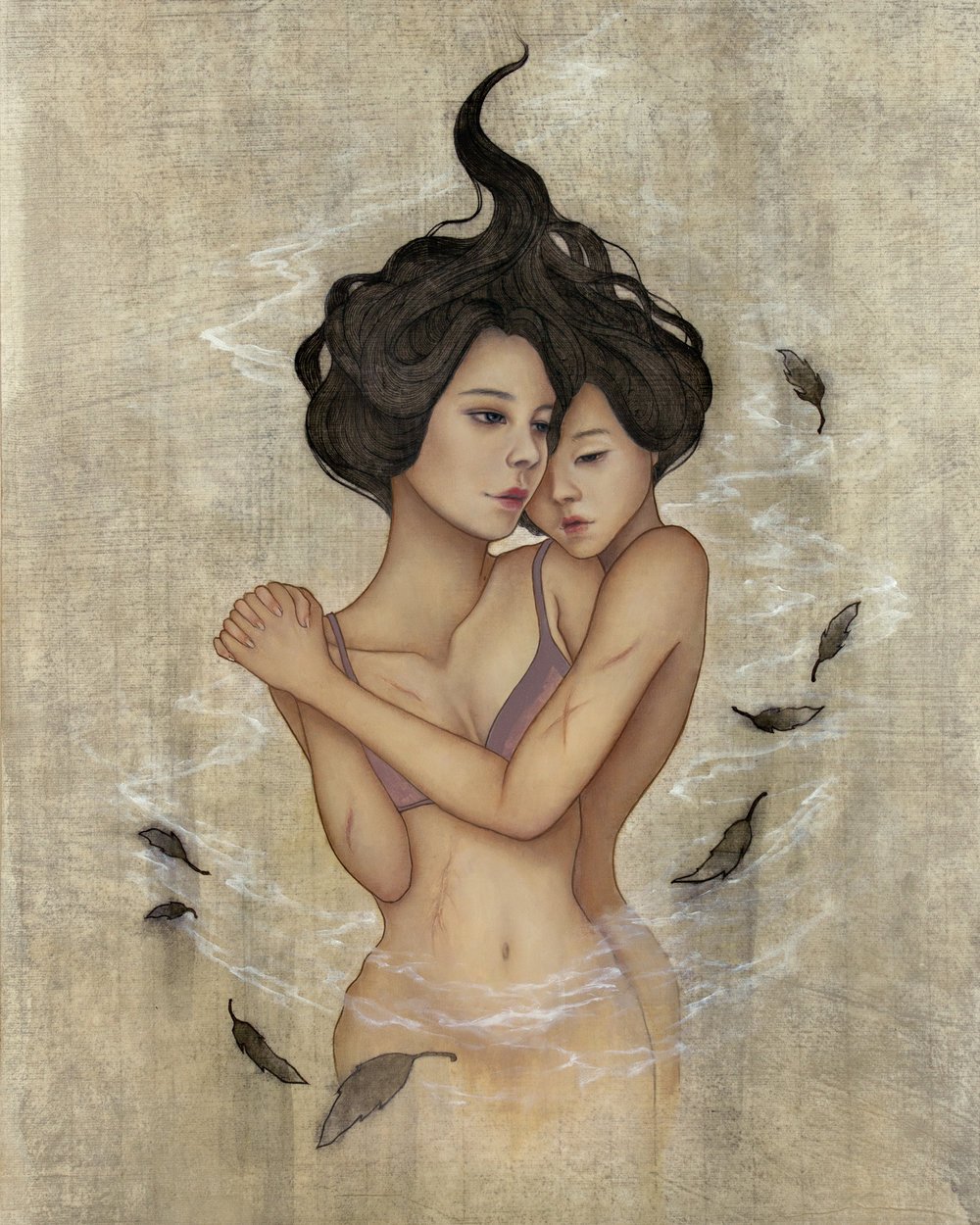
Lavennz Ooi | "Hug" | Oil & Ink on Xuan Paper | 16” x 20”
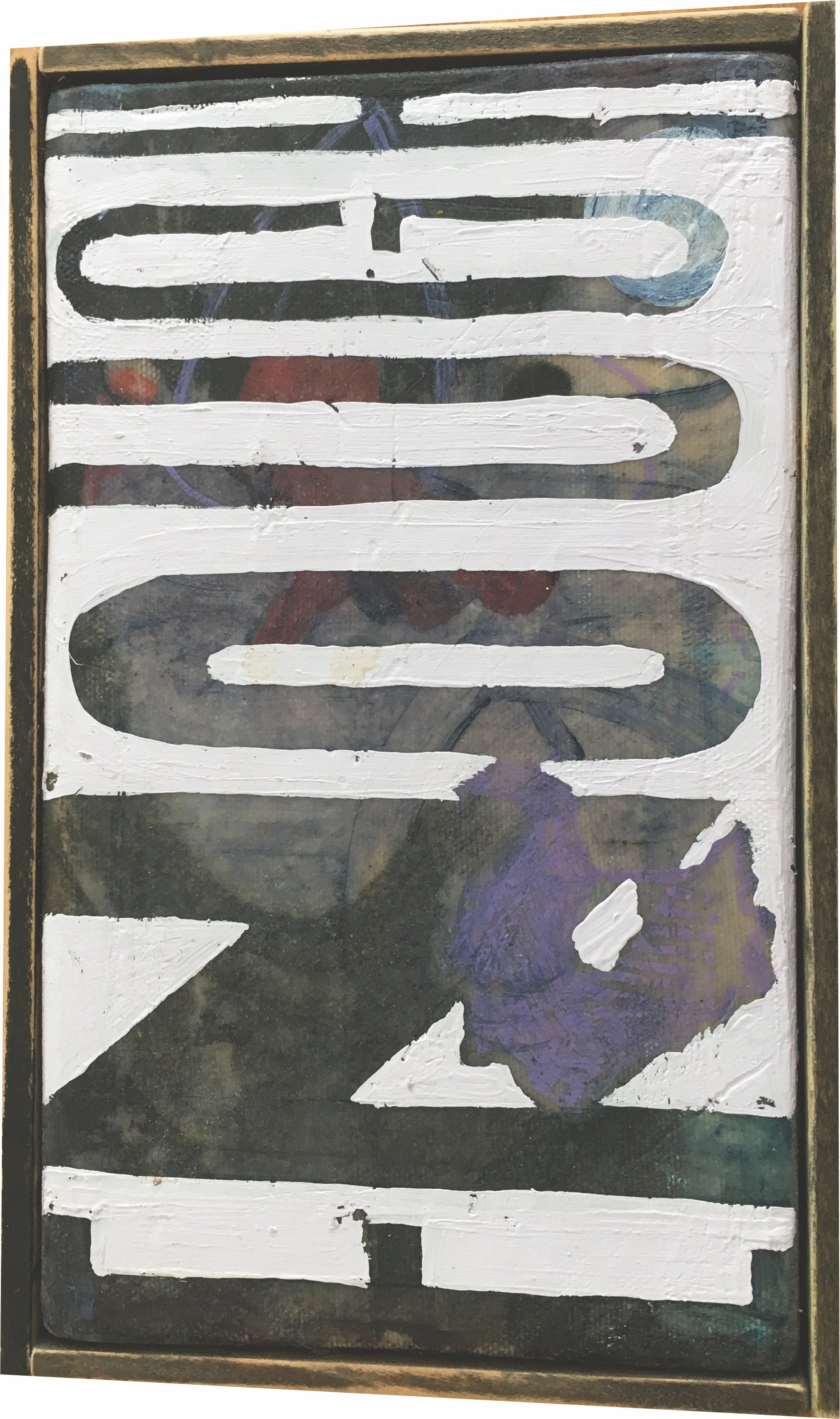
Jessica Townes George | "Enough" | Marbleized Canvas, Marker, Wax, House Paint | 6” x 9”
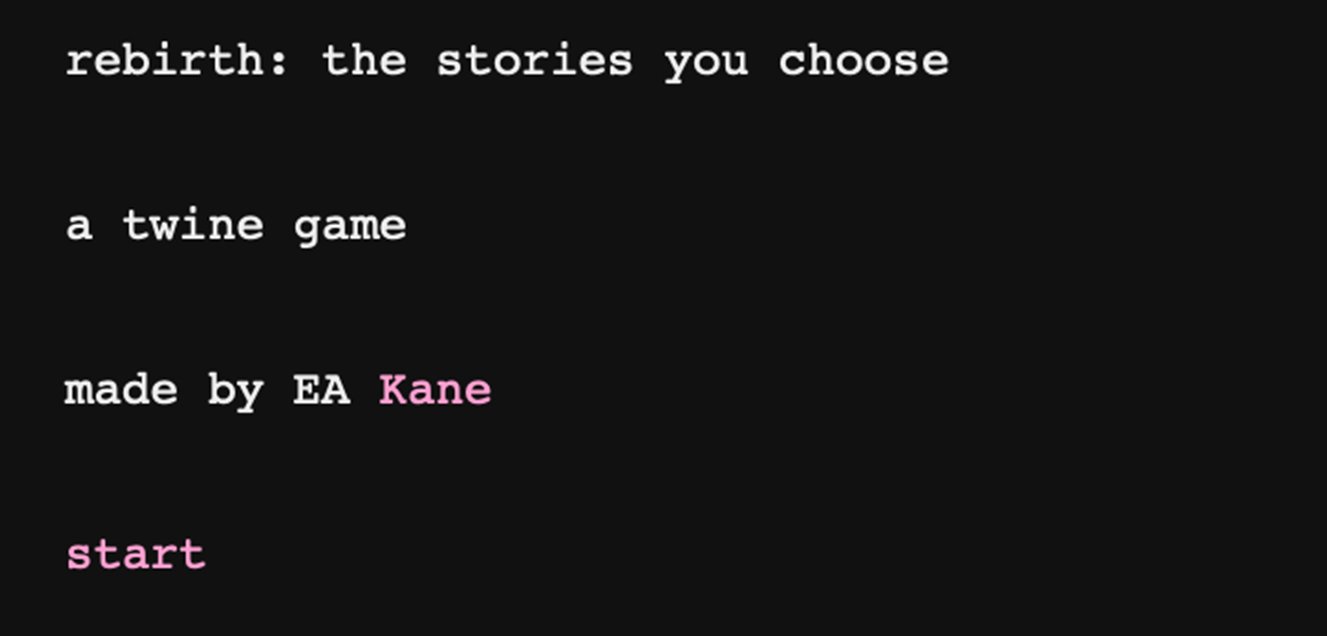
EA Kane | "Rebirth" | Online Twine Game

Kelsey Halliday Johnson | "Bochier" | Sumi Ink on Archival Pigment Print | 20” x 27”

Kelsey Halliday Johnson | "Bochier" | Sumi Ink on Archival Pigment Print | 20” x 27”
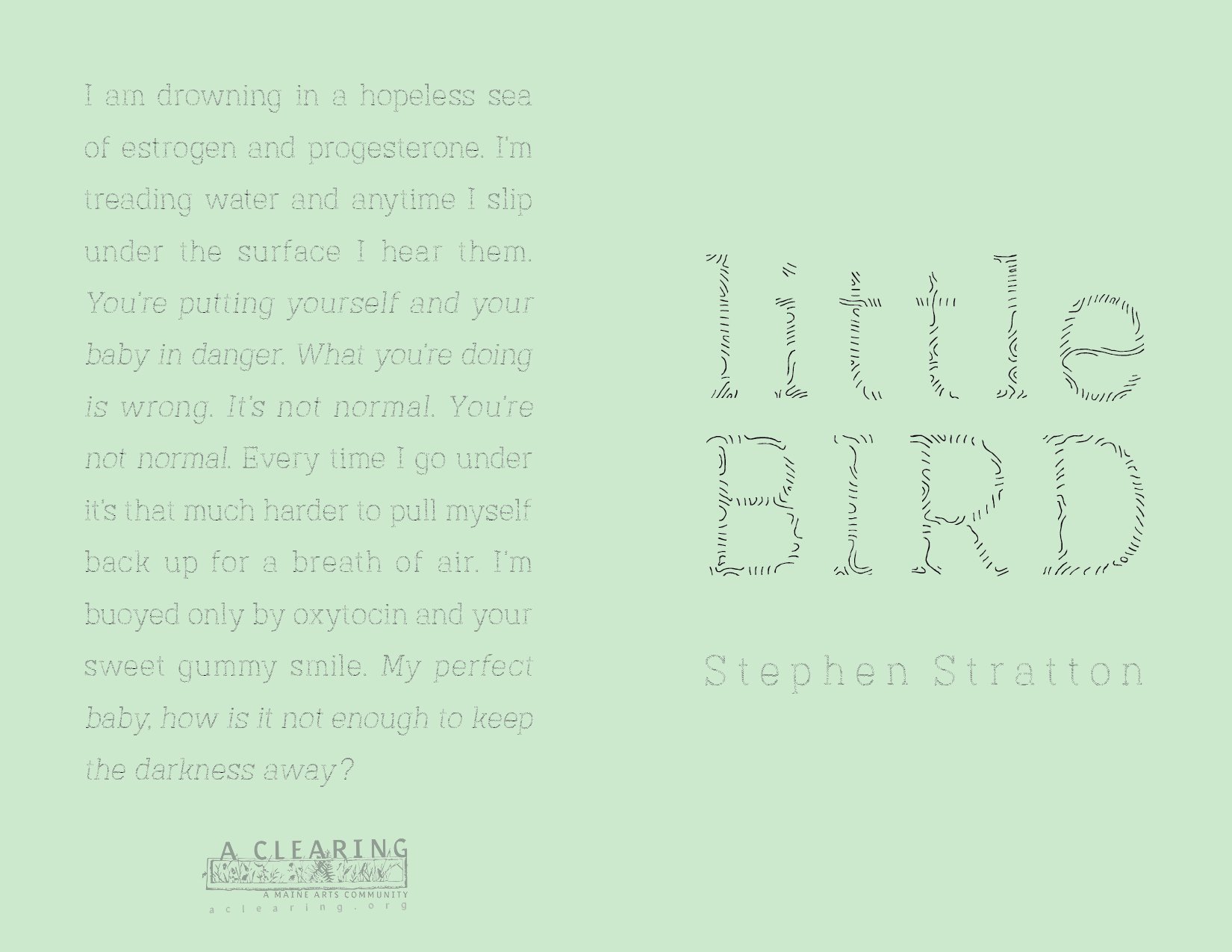
Stephen A. Stratton | "Little Bird" | Chapbook
A CLEARING X Tender Table at CÔNG TỬ BỘT | Portland, ME
Our dream collaboration with Tender Table! For this food and storytelling event, speakers Cassandra Loftlin and Asha Tamirisa made and shared home cooked dishes, telling stories about their sweet, savory, sour, and bitter relationships to food and its connections to identity, memory, and community. The walls of CÔNG TỬ BỘT were adorned with artwork by this cycle’s featured artists.
events
A POSSIBLE PRACTICE Month-Long Pop-Up | Farmington, ME
IN THIS SPACE WE… ✧ faced our fear of ladders ✧ wore matching mustard outfits ✧ disco-danced for the whole street to see ✧ received the gift of typewriter poems inspired by a single word whispered from our lips ✧ lip synched to Talking Heads ✧ asked ourselves (asked each other) what it means to be visible ✧ sung acapella Neko Case ✧ wrote letters to grandmothers, to pen pals ✧ peeled fragrant citrus in midwinter ✧ played old banjo country tunes ✧ hand painted letters in deep concentration ✧ sung in public for the first time ever, accompanied by strangers ✧ shared illustrations of laundry days ✧ read “Etymology of butch” in eleven different voices ✧ accepted help from our friends ✧ placed keepsakes in a box ✧ flipped the record to side b ✧ planned a speakeasy fundraiser to support local food programs ✧ shared family photos from past lives ✧ wrote into our personal etymologies ✧ predicted what exactly one pound of onions would weigh ✧ were wrong and laughed ✧ played ukulele to The Cranberries ✧ re-learned the Pythagorean Theorem with illustrations ✧ read original poems from secret notebooks ✧ pointed the camera and clicked ✧ waited for you to arrive ✧ listened, unknowing ✧ allowed space for silence to grow something un-snow ✧ practiced being possible ✧
artists
-
CHELSEA ELLIS [@heychellisea] is a photographer and multidisciplinary artist who lives in Portland, Maine. She received her BA in photography from the University of Southern Maine in 2012. She most recently exhibited work at the Harlow Gallery’s juried art exhibition “Art2018” in Hallowell, Maine, and in the contemporary art series “Process” by AMPL Art Consulting in Portland. Ellis’ creative practice explores themes of mourning, ephemerality, anxiety and sensed-presence through combinations of object alteration, performance, body paint, and digital subtraction.
-
JESSICA TOWNES GEORGE is an artist whose practice is grounded in sleeping on islands, reading poems, sun salutations, collecting things, giving things away, encouragement, exploring ecosystems, raising children, and movement. She explores her thoughts and dreams through painting, drawing, photographing, and writing. Jessica has a BFA in Painting/Photography from Rhode Island College and an MFA in Interdisciplinary Studio & Theory from the Maine College of Art (MECA).
-
KELSEY HALLIDAY JOHNSON [@plutobandit] (b. 1986, Philadelphia, she/her/hers) currently lives and works in Portland, ME. Using autobiographical and archival approaches, Johnson’s personal practice critically explores human perception, our evolving understanding of the verisimilitude and function of the photographic medium, and our mediated relationship to the landscape. Her work has been exhibited at organizations including Vox Populi, the Berman Museum of Art, the Delaware Art Museum, the Lucas Gallery at Princeton University, the Philadelphia Photo Arts Center, the Academy of Natural Sciences of Philadelphia, Icebox Project Space, Delaware Contemporary, EXPO Chicago, and Rosenwald-Wolf Gallery at The University of the Arts. An alumna of the Institute for Curatorial Practice in Performance at Wesleyan University, Johnson received her interdisciplinary MFA at the University of Pennsylvania with a certificate in Landscape Architecture and holds her bachelor’s degree in Art and Archaeology from Princeton University with a certificate in European Cultural Studies.
-
LAVENNZ OOI [@lavennzooi.art] was born on Penang island, northwest state of Malaysia. She grew up moving a lot within the island before she went south to Kuala Lumpur for her degree study, spent a few months in Malacca, stay another three years back in Penang and finally took a 8000 miles of flight to Maine, the pine tree state she’s called home since fall of 2013. Art has always been her favorite subject since her first year in school, which inspired her to draw from an early age. Regrettably, her relationship with painting was interrupted intermittently by all kinds hobbies as she grew up. Not until she was doing the last year of her engineering study, did she reconnect with her artist’s dream. Her works have appeared in various shows, in Greater Portland, Brooklyn, Los Angeles, and Vancouver. In 2018, she had her first solo show in Portland, Maine. Other than art, she lives for coffee, early morning, grey sky, snows, and rains.
-
MAI SNOW [@maisnowpaintings] was born in Perm, Russia. They were adopted by an American family at the age of 13. They received their BFA from Maine College of Art in 2013. They currently live in Austin, Texas where they are an MFA Candidate for 2020 at the University of Texas. Their work celebrates the soft and hard complexities of queer sexuality, gender, and the non-binary body. The central subject of their current work is the figure, which gestures toward the body as an entity that is both marked by sex and a marker of sex. They are interested in the question of the witness, and the relationship between the individual (personal) and the communal (political/historical). Their work also investigates the nature of body memory—specifically, how our physical and emotional selves carry trauma, pleasure, and desire and the ways that these three kinds of corporeal experiences/histories are inextricably linked to one another.
-
STEPHEN A. STRATTON [@papabear_81] is a writer who lives and works in Portland, Maine. He spends much of his time alongside his family, exploring the rich natural landscape of Maine. Stephen’s work is reflective of his queer/trans identity, and his journey to become a parent. His writing centers around themes of grief & loss, family, identity, and his evolving relationship to his body.
readings
“Why Writing Matters in the Age of Despair” by Lyz Lenz
Thinking about our private and collective despair; why and how we make art; nuance, the tangle, the hard questioning; creation against erasure; art as proof of our lived experience, of our enduring existence
“On Becoming an American Writer” by Alexander Chee
Thinking about memory and how we access memory; the bridge between language and association; our dead, our past, our ancestors; to live beyond lifespans; what’s been made for us, what, in turn, we make for them
“How our bodies domesticate/disaster: An Interview with Kristin Chang, Past Lives, Future Bodies” by Leona Chen
Thinking about how are we making art to save our younger selves?
“Ocean Vuong on being generous with your work”
Thinking about why and how we make; the intimacy of shared ideas; the importance of listening; to have the ambition to reimagine and arrive here: “Attention is the most common and purest form of generosity”
“Still, Somehow” by Hieu Minh Nguyen
Thinking about childhood; memory; the bone and the blood; the brutal and the beauty; tenderness; types of love; the clarity of grief; distance; watching; hope against all odds
“Perihelion: A History of Touch” by Franny Choi
Thinking about naming as a means to know; cycles; the moon; the phases of life; our hungers, desires; our distance, an unbecoming; the teeming world; a liminal space; how are we mirrors of the sky?
“There Is No Single Voice of America” by Elaine Castillo
Thinking about the power of untranslated language; audience; a truer representation; who are we writing for?; what opens to us, what can still be a kind of opening
“What Use Is Poetry?” by Meena Alexander
Thinking about this
“I Made Peace With My Body on a Sweaty Dance Floor” by Kimberly Drew
Thinking about spaces of celebration; creation; gathering; means of expansion; ways to get free; embodiment; going for it!; communing with each other, showing up as we are; “my body’s worthiness of love”
“How I Wrote ‘A Mexican Dreams of Heaven’” by José Olivarez
Thinking about what happens when POC enter those supposedly hallowed halls, those looming ivory towers, those gates? We may be ‘in,’ but what does that even mean? —Alana
Listen to Olivarez read this poem on the VS podcast in front of a live audience (starts at 29:40)
“Giving Up the Gaze: A Conversation with Sally Wen Mao”
Thinking about how to continue with levity amidst the grief, the struggle; how to view our creative work in our own definitions of fulfillment, of success; how to find each other; how to come together; this, this togetherness
“What Collecting 100 Rejections Taught Me about Creative Failure” by Kim Liao
Thinking about rejection; a humbling; what gains traction and how it changes, how it changes us; an “expertise” in failure; practice as commitment; a forging on; foregoing our expectations in the trust of growth
“Spell to Find Family” by Chen Chen
Thinking about how we find family — through fate, though choice; creation of new life, new family; relationships/how we relate to each other; power dynamics; embracing prismatic family in all the ways we arrive
“Envelopes of Air” by Ada Limón and Natalie Diaz
Thinking about correspondence, letters, envelopes of air; what we hold when we hold a letter; how we hold each other; collaboration; the tenderness of the page, our handwritten notes
“Who In American Is Allowed To Be Ordinary?” by Lisa Ko
Thinking about who gets to “assimilate”, what that means, and at what cost; who gets to be better than another?; how can we use our interdependence to lift each other up?; the simple right to be ordinary, in our unabashed selves, in this “spiked and complicated love”
“Sorrow Is Not My Name” by Ross Gay
Thinking about seasons of mud, of gravitational pull; a nighttime, a shadow; and then, the sweetness among the sorrow
“The Heart-Work: Writing About Trauma as a Subversive Act” by Melissa Febos
Thinking about universal truths in personal stories; the telling, to decide to tell; acts of subversion against a patriarchy that aims to shame and silence; vulnerability as bravery; writing as art
“Speaking Tree” by Joy Harjo
Thinking about how to slow down and listen; unlanguaging; what language can/cannot say; interconnectedness with our world; “what shall I do with this heartache?”
“How Can Black People Write about Flowers at a Time Like This” by Hanif Abdurraqib
Thinking about tender and brief, this life, this love; the lines we return to: “Forgive me, for I have been nurturing my well-worn / grudges against beauty”; the temporality of our springs; this gorgeously crushing poem: take a handful of fleeting minutes to hold it, knotted, in your hands
“Etymology” by Airea D. Matthews
Thinking about etymologies; definition; self-definition; our names and those who named us; mispronunciation; names alive on the tongue
“I Don't Know What Will Kill Us First: The Race War or What We've Done to the Earth” by Fatimah Asghar
Thinking about the fever spring, a collapsing umbrella of catastrophe all around us; and also, the world’s small beauties at our fingertips
“'And Yet, We Meet There': On Resistance, Memory, and Transformation in Sarah Gambito's Loves You" by Rachel Ronquillo Gray
Thinking about the blurring lines between art forms; all the ways in which we’re nourished
“The Palace” by Kaveh Akbar
Thinking about the wilds of nature, of human nature; destructive pulls; poetry, of place; what home we can find on this Earth—and how?
“Beauty is not a luxury: a praise song” by Tamiko Beyer
Thinking about the intimacy of a newsletter, a quiet inbox moment that wraps us in story; a liminal space between the written and the read; dear friends at the fire; beauty is not a luxury, beauty is necessary; the combination of poetry, prompt, and recipe to carry forward so that we may “fill our cup [...] to fight another day” together
“Against Catharsis: Writing is Not Therapy” by T Kira Madden
Thinking about the workings of memory, of how we remember; the mechanics of communicating the past; how to pour ourselves into our work while also leaving room room for the reader to inhabit, to wonder, to wander
“I Haven’t Masturbated in Five Days for Fear of Crying” by Eloisa Amezcua
Thinking about
how “sadness keeps us from doing things that make us feel good”; what pleasures have we been avoiding for fear of crying?; can addressing this question honestly allow our sadness its course, our joy to bubble like a cold spring to the surface?
“Dream Beyond the Wounds” by adrienne maree brown
Thinking about reframing the void of darkness into a possibility to dream; where are our support systems and how do we stay connected?; how can we use our resources and imaginations to take care of each other—and keep taking care of each other far into the future?
from “Feed” by Tommy Pico
Thinking about our personal, collective, planetary ecosystems; nothing is separate; a wild immediacy where the everything-ness of life floods our senses; how life is simultaneous, wet and layered, never static, never one thing at once
“Lines of Work: Five poets on their day jobs” by Molly Sutton Kiefer
Thinking about the gig economy, the hustle; re-writing our bios, asking ourselves how we spend our days; what is work?; what does work mean to us financially, emotionally, artistically?; how does paid work inform the work of artistic practice (and vice versa) and how can we be transparent about the work that occupies our days?
“Shira Erlichman Reflects on Odes to Lithium”
Thinking about the power of naming as a way to know; how vulnerability can weave our connections stronger; remembering to listen to our deep knowing, to allow our creative force to flow
“Regarding Columbus, Ohio” by Saeed Jones
Thinking about letters; intimate spaces of reflection; moving and how we move; following our happiness, wherever it leads; engaging with new meanings of our preconceived notions of “making it”; taking steps towards a joy that sustains our practices; love growing through the cracks of oppressive structures; there is kinship and caring outside of capitalism
Support for A POSSIBLE PRACTICE 2019 was provided by the Kindling Fund, a grant administered by SPACE as part of the Andy Warhol Foundation for the Visual Arts Regional Regranting Program.




